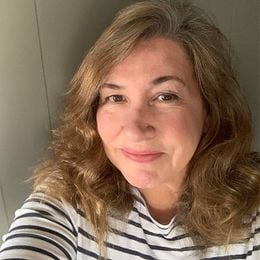Veteran Nurses Are Friends and Mentors
At Northwestern Hospital, the “old dolls” navigate COVID-19 with younger nurses
Raquel “Rocky” Callanto, 63, has been a nurse for 35 years, having spent the majority of her career at Northwestern Hospital in Chicago. Since the onset of the coronavirus pandemic, she has been leading a specially created COVID-ICU unit (one of three such units in the 894-bed medical center) as a charge nurse, overseeing the other nurses there.
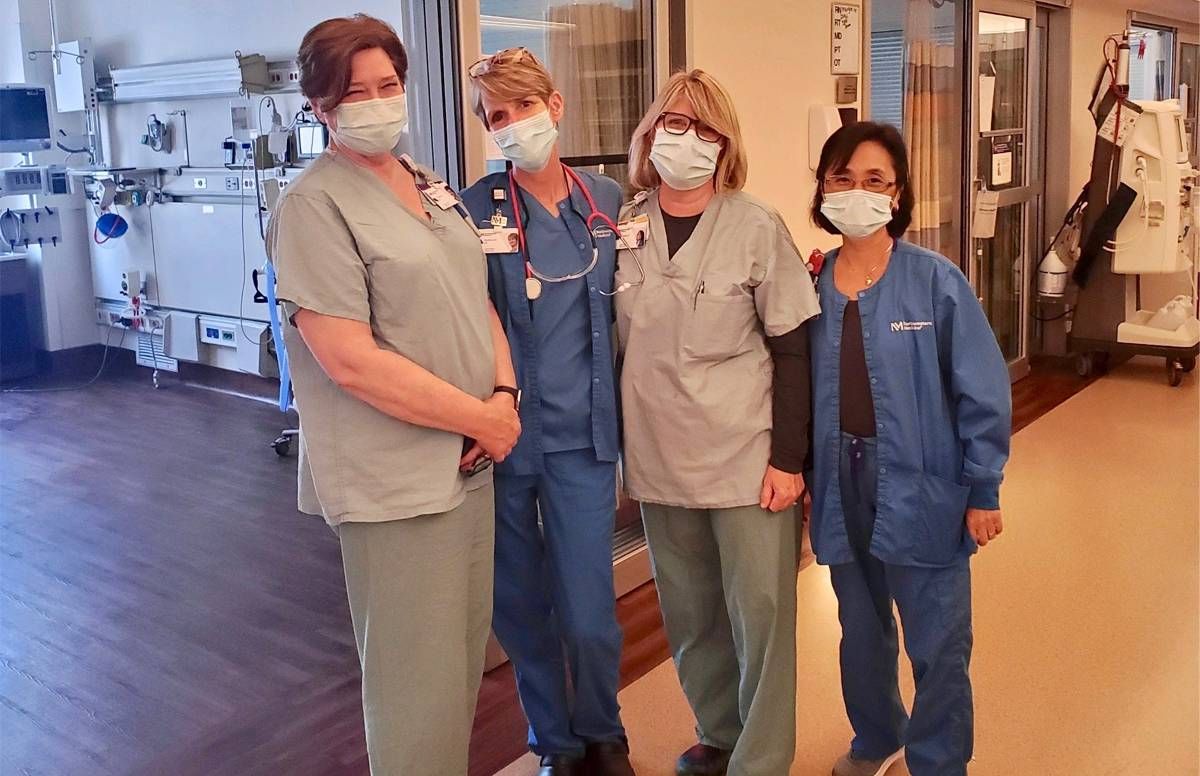
After the long and trying days of the first few weeks, Callanto would return home and self-isolate in order to protect her family, including her 92-year old mother.
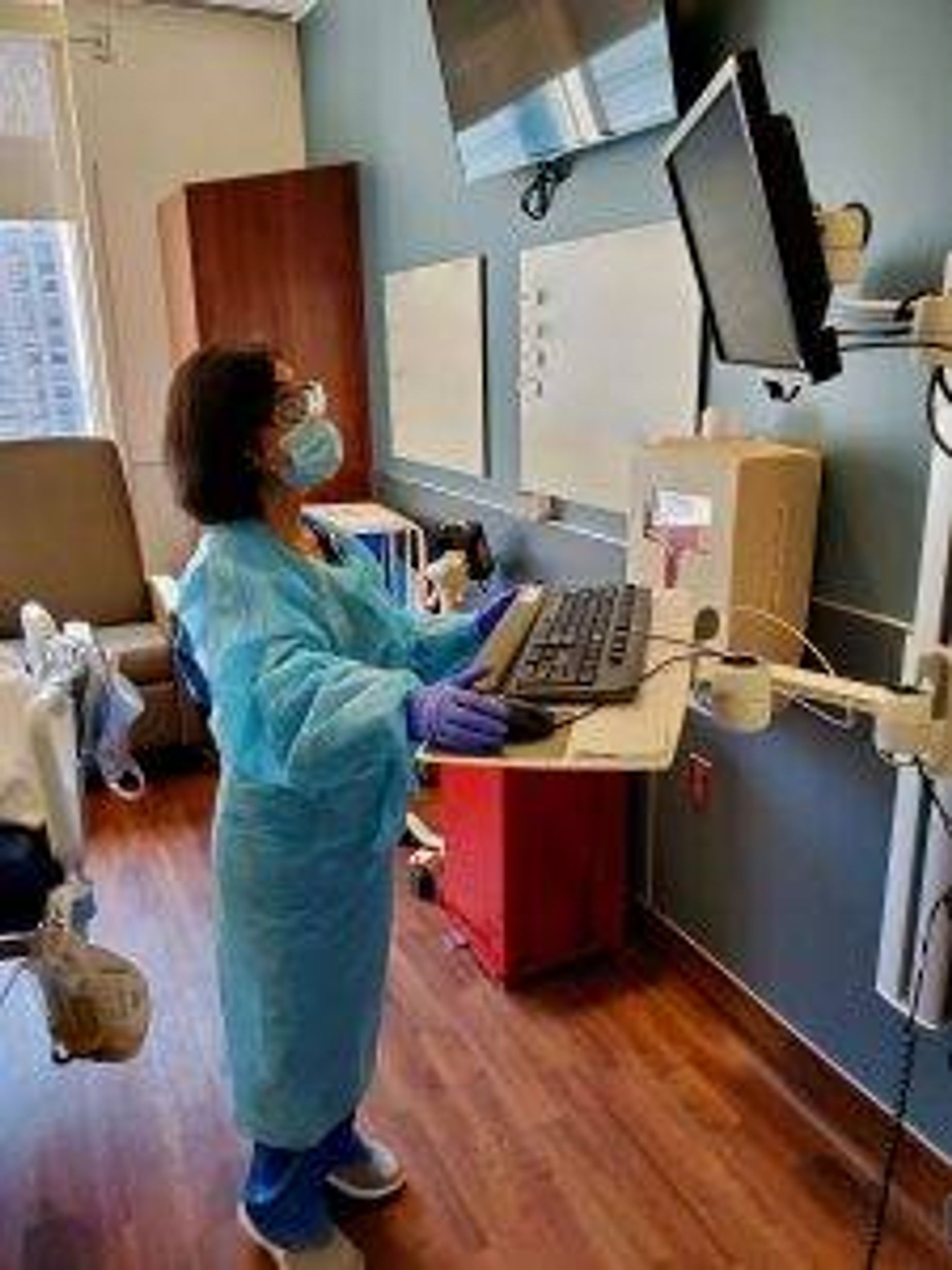
“I would explain to her why I couldn’t be close to her, and talk to her about my job,” said Callanto.
In late May, Callanto’s mother, who had previously suffered a stroke, passed away peacefully at their home. “It was not sudden. I was so glad she was here with us,” she said. “I have my husband and my daughter to support me. And the 'old dolls,' who are my second family. They are praying for me.”
The “old dolls”, as they call themselves, are a group of nurses at Northwestern Hospital, the primary teaching affiliate for Northwestern University Feinberg School of Medicine, who have been working together since the 1980s.
According to Callanto, the women have attended weddings, showers and other family celebrations for each other. They’ve watched all of their children grow up; there are even some grandkids in the mix now.
Our Commitment to Covering the Coronavirus
We are committed to reliable reporting on the risks of the coronavirus and steps you can take to benefit you, your loved ones and others in your community. Read Next Avenue's Coronavirus Coverage.
“We worked weekends together. We worked on Mother’s Day together,” Callanto said.
And together they have learned how to be better, confident and more empathetic nurses — lessons they are now passing on to the next generation.
Similarities to Another Medical Crisis
Along the way, the women have also observed and experienced challenging medical crises. The older nurses interviewed for this story likened the COVID-19 pandemic to the AIDS crisis when it first struck in the 1980s.
Linda Michna, 62, who has been a nurse at Northwestern for 40 years, helped pilot the hospital’s rapid response team 15 years ago. The team represents a group of clinicians who bring critical care expertise to patients. If a patient’s health begins to worsen on a regular unit, the rapid response team is called in to assess and stabilize the patient, while determining if ICU-level care is needed. Michna has been working as a rapid response nurse during COVID-19.
"Everyone is on a level playing field with this — the physicians and all the nurses."
She recalls the steep learning curve she and her fellow nurses had to navigate when the first AIDS patients were admitted to Northwestern.
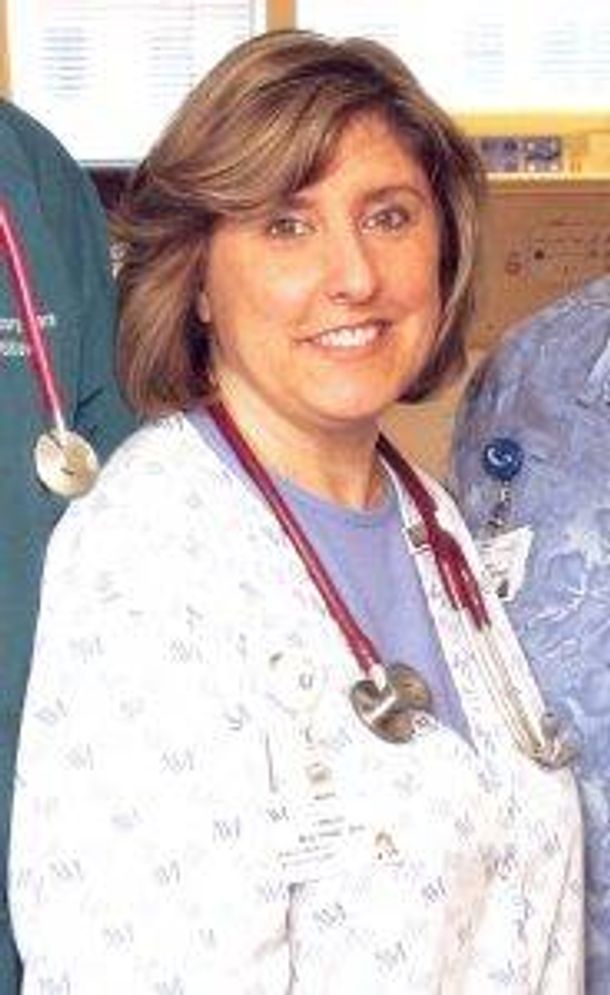
“One thing I’ll always remember was how awkward it was to wear gloves when we were inserting lines [for IVs, etc.] — we had never done that before,” recalled Michna.
Susan O’Connell, 64, another “old doll” with a 40-year nursing career, also reflected on comparisons between the AIDS crisis and the COVID-19 pandemic.
“This is a different kind of horrific, but at least family members were able to be with patients [with AIDS],” she said. “Due to COVID, we have a no-visitors’ policy, and seeing patients who are alone through this kind of takes you over the edge.”
Callanto agreed, calling the first few weeks of the pandemic “a nightmare” as she and the other experienced nurses were deeply affected by the fact that so many people were dying alone. And the sheer volume of COVID-19 patients has been unlike anything they've seen in the past.
'We Are Learning So Much'
For younger nurses like Nikki Michna, 31, who is Linda’s daughter, working in the COVID-ICU alongside the veteran nurses has offered an education like no other, not only in medical practice, but in empathy.
“The pandemic has been awful and really interesting all at the same time,” says Nikki, who will soon mark her eighth year as a nurse. “Our patients are so sick, and we are here to support them, but we are also learning so much. It’s like watching medical history being played out.”
And this is the case for younger, as well as more experienced, nurses, she says. “Everyone is on a level playing field with this — the physicians and all the nurses. There is no benchmark because it’s unlike anything anyone has experienced before.”
The veteran nurses have mostly been working three or four days a week during the pandemic — some putting in more hours than usual. Nikki, who typically works 36 hours per week on overnight shifts, has been logging 48 to 60 hours for a while. “We’re finally starting to dial back our overtime,” she says.
While Nikki says she and her mom are like “ships passing in the night” — only able to greet each other briefly as Linda leaves for the day — she’s grateful that she has the chance to see her mother.
“Some of my friends haven’t seen their parents for two months. Even if it’s just for two minutes, it’s kind of wonderful to get to see her,” she says.
The Power of the Eyes
When the pandemic began, back in March, Nikki says she took in “a lot of clinical knowledge” from the more experienced nurses. But as the crisis has gone on, she is learning a new set of “interpersonal skills.”
With all of the PPE (personal protective equipment) the medical staff is required to wear — masks, goggles, gloves, bonnets — Nikki says "the only way to convey basic human emotions is with the eyes."
“With the older nurses, there is also something they do with their voices; they are able to convey so much caring and empathy to the patients when they talk to them,” she says. “They are helping me to be a better communicator by seeing their example.”
O'Connell frequently works with younger nurses, and she's amazed by the fortitude many have exhibited during the pandemic.
Nikki's experienced mom explains what she does to help. “I hold their hands, I look in their eyes and try to speak softly and in a reassuring way,” Linda Michna says. “That’s all [the patients] have to latch on to.”
Callanto says she always tells her patients, “It’s me, Rocky,” so they know that she is there for them. “And sometimes I’ll say that I am wearing expensive lipstick, but they just can’t see it,” she adds with a little laugh. “You have to joke sometimes.”
Learning From Each Other
The respect for the hard and soft skills that nurses bring to their jobs goes both ways these days. O’Connell frequently works with younger nurses, and she’s amazed by the fortitude that many have exhibited during the pandemic.
“Some of our nurses just started working here in February. Can you imagine that?” she says. “When I first started as a nurse, working in the ICU, it took me a year to stop hearing alarms in my dreams, and what they are experiencing is so much more intense.”
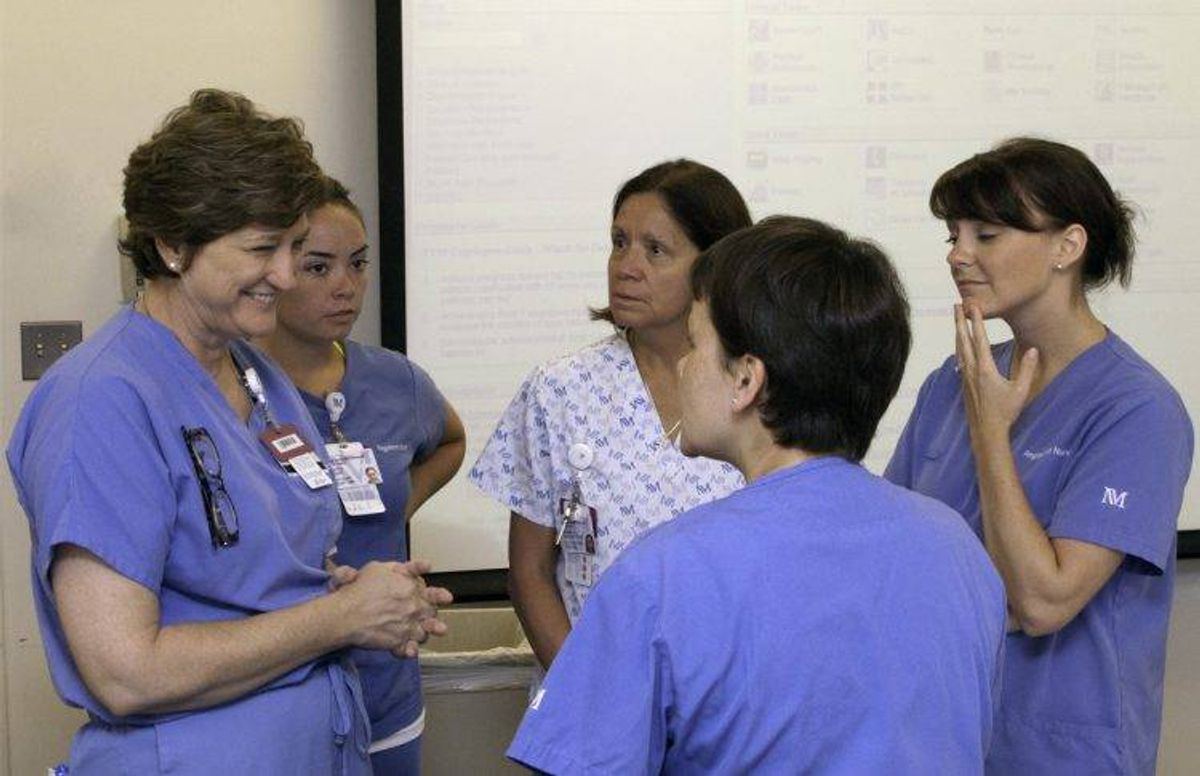
O’Connell believes she and her age mates bring a steady hand to their work. “We don’t get overly excited,” she says. “We just follow the science. And as you continue throughout your career, you build up a reserve.”
“I love working with younger nurses, especially when they want to learn,” says Linda Michna, adding this was evident when Northwestern was converting its regular medical floors to COVID-19 units. “They were so ready to learn all of the new procedures we had to follow. It was really a learning experience for all of us.”
'We've Gone Through Difficult Times Before'
Sometimes, the “old dolls” just like to grab a few minutes together to offer one another support.
"It's always good to touch base with the people you started with," O'Connell says.
“In a crisis, it’s good to go back over our day with someone who knows how long we’ve been doing this,” says Linda. “We can stick together and go through this because we’ve gone through difficult times before.”
